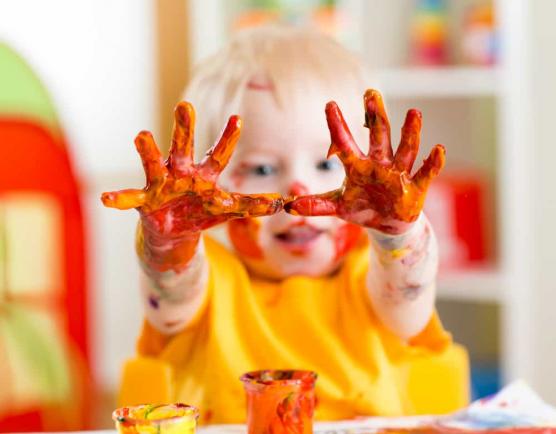
Kids will be kids - it's a phrase often heard as parents excuse misbehavior from their little darlings. It's a cute adage, but can be harmful to your child's behavior and development. Saying this phrase gives your child a "get out of jail free card" to escape responsibility and consequences. Unfortunately, this excuse is applied liberally to both minor and major mishaps, shortchanging you the chance to teach your child some valuable lessons.
While you may be tempted to think your kids will grow out of their "kids will be kids" phase, think twice. Not excusing childish behavior in these five situations will help prevent you from raising kids that will walk all over you later in life.
1. Meal times
The stress of adapting recipes or even cooking separate meals to suit each age group in your house is not something that should accompany motherhood.
Granted, it's appropriate for kids to not particularly like a certain ingredient or recipe, but allowing kids to completely rule your menu won't stop when they get a little older. Picky eaters won't ever be encouraged to try new things if they get a childhood pass out of all main courses and sides. Having your child eat what's on your menu will certainly create more adventurous eaters in the future.
2. Conversation
Parenthood is a selfless act - but where in the parent manual does it say that the world stops when your child interrupts your conversation? Whether you are on the phone with the repairman or chatting with a friend on the porch, the "kids will be kids" mentally excuses any sort of impolite interruptions from your little tyke. But be careful about indulging this behavior. Buying into the shouting, screaming, whining and interrupting behavior of your child leaves no room for lessons on patience and courtesy. Remember, conversation is a skill that will be used throughout their lives. Take time now to raise kids who are respectful and polite - children can wait until the conversation has finished.
3. Consequences
If you are there to fix every problem that your child encounters, he or she may not learn the value of consequences. It is not your job to magically erase problems in your child's life. Instead, use this chance to teach. This may be tough because you will need to stick to your side of the bargain. If you threaten a time-out if chores are not done, you need to follow through. Your children will not take you seriously if you continue to excuse behavior and erase appropriate consequences. Yes, this may mean that you need to watch your child shed a few tears over a time-out, but when handled appropriately, important lessons will be taught.
4. Responsibility
Kids can be quite responsible, but only if you give them the chance. Giving your child the chance to get things done on their own little to-do list is an invaluable life skill. Always picking up their toys and providing constant reminders aren't as helpful as it seems; you won't always be there with your child to act as a personal assistant and maid that follows them around.
5. Bedtime
Your child may want to stay up late for movie night, but don't indulge this whim often (you will want to save late nights waiting up for when they are a teenager, not a toddler). Children need to learn a regular bedtime schedule - and keep that schedule. You will most certainly need to be the enforcer of this; few kids demand an early (and tantrum-free) bedtime, but don't give into protests. Don't employ a "kids will be kids" mentality when fits are thrown before bedtime and teeth brushing. Teaching children early the value of a balanced sleep schedule will do wonders as they grow up and start to manage their own schedules and bedtimes. It will also simplify your bedtime routine when your children are asleep at a decent hour.
Don't be discouraged. The "kids will be kids" mentality can be used to its full potential at the park, during arts and crafts and other situations of childhood bliss. But in the situations above, this mature level of behavior won't make them love you any less. In fact, they may even thank you for it "� someday.

